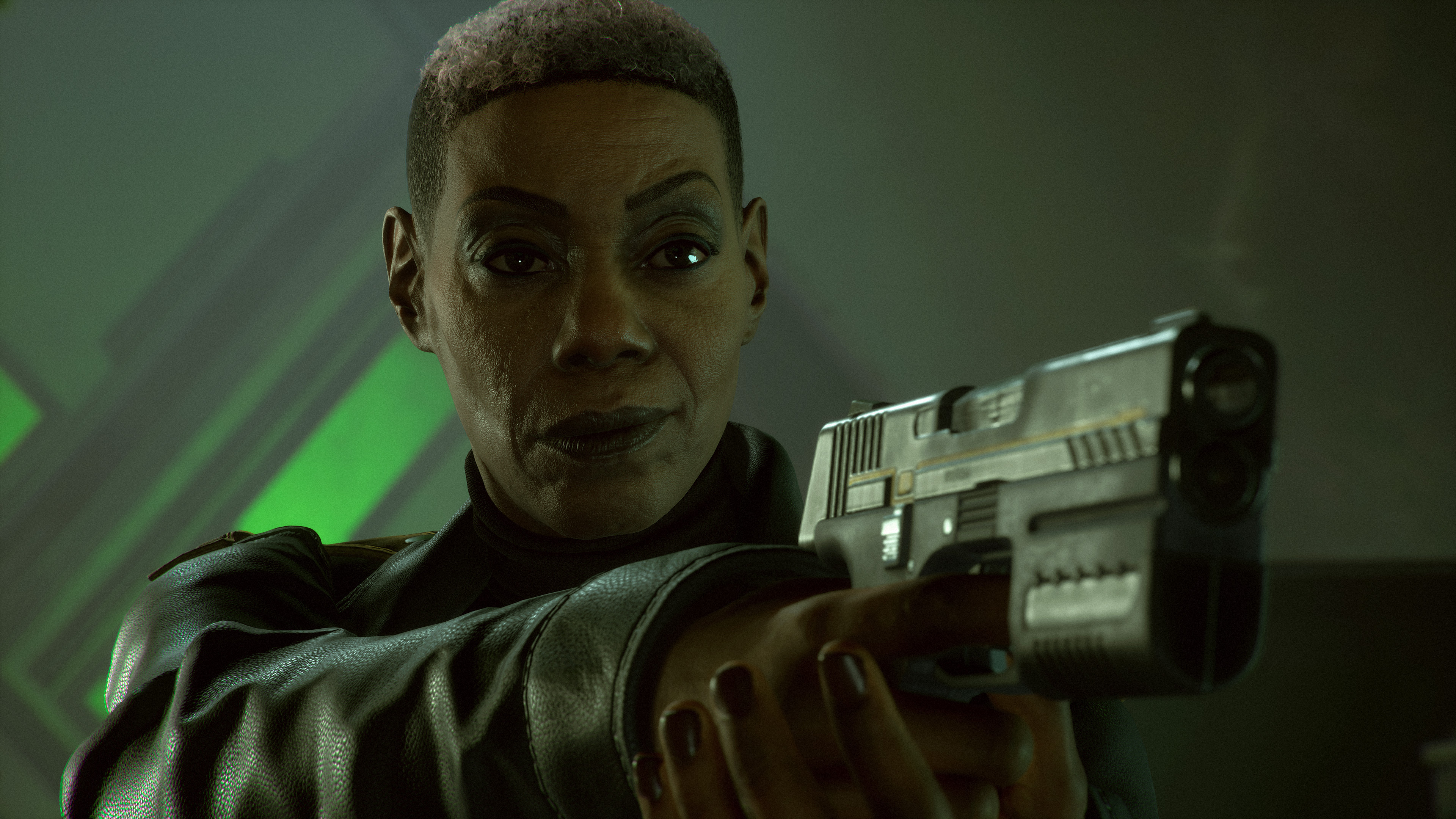
Is Suicide Squad Kill the Justice League canon to Arkham Asylum, City and Knight? The previous Batman Arkham games made by Rocksteady are certainly similar in some ways to the new Suicide Squad game, but are they the same continuity and canon? If so, elements like Poison Ivy now being a child or Deadshot being a completely different person are definitely worth explaining, and we'll explain all the details about Suicide Squad canon and how it ties into the Arkham games below.
Warning: The following contains minor spoilers for the plot and setting of Suicide Squad: Kill the Justice League, as well as some more major plot spoilers for Arkham Knight and Arkham City.
Is the Suicide Squad game in the same canon the Arkham games?

Yes, Suicide Squad Kill the Justice League is in the same canon, continuity and universe as all previous Arkham games, taking place several years after the conclusion of Arkham Knight. In fact, the Suicide Squad game contains numerous references to the events of the Arkham games, including a whole sequence that takes place in a "Batman museum" where all the events of the Arkham trilogy are laid out. However, that means that certain elements need to be explained, which we'll do below.
Is the Suicide Squad Batman the same as the Arkham Batman?
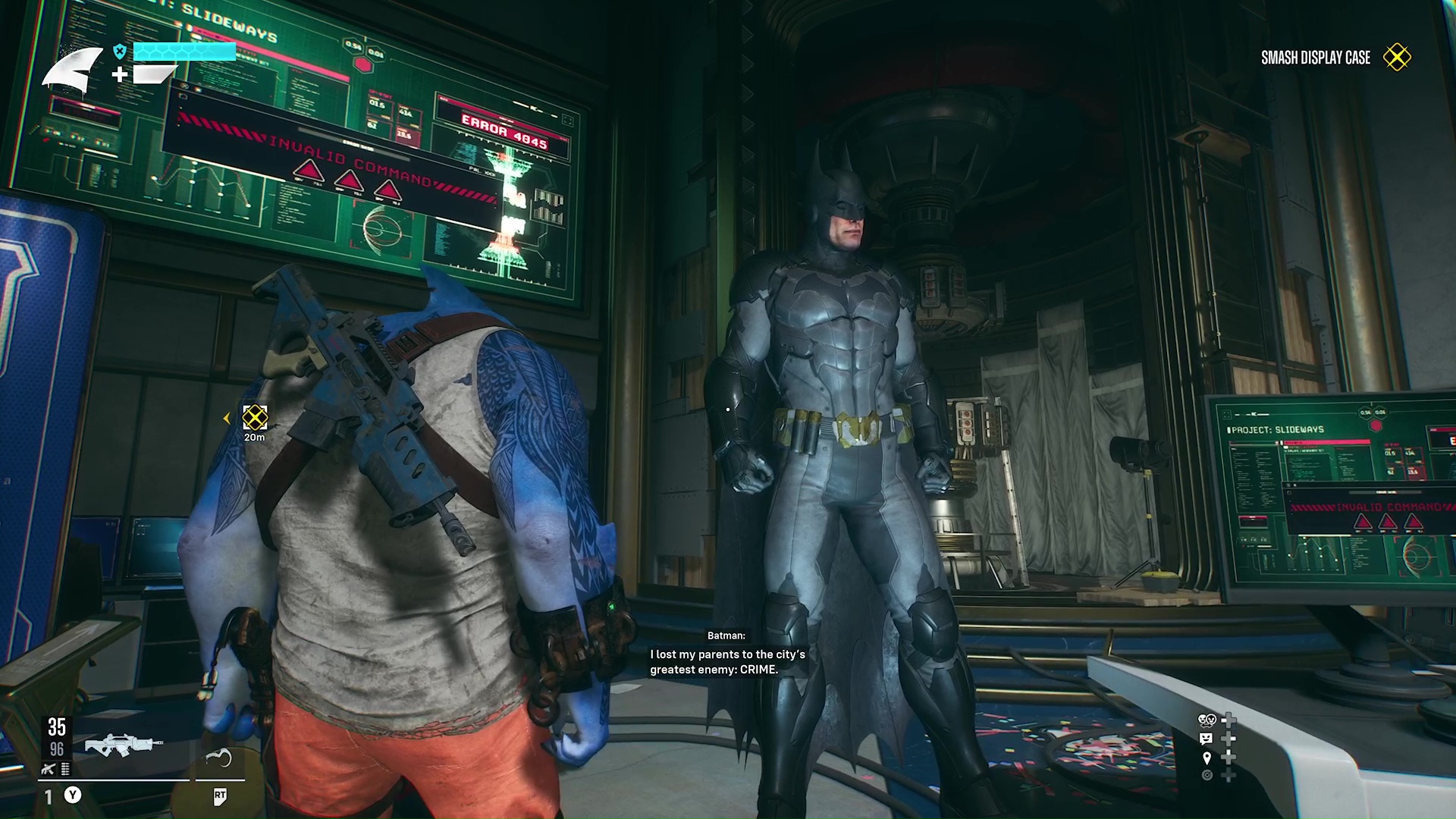
Yes, Batman as presented here is the same man who departed in Arkham Knight. That game famously ended with a secret and rather ambiguous finale, one that is explained more clearly in Kill the Justice League: after having his identity revealed and faking his death in Arkham Knight, Bruce went into hiding and began tormenting criminals with Scarecrow's fear gas under the new identity of "The Demon Bat" for several years, before eventually being drawn back out into public by the Justice League. The League convinced him to revive the persona of Batman and fight evil more openly - thus, Bruce ultimately ends up joining the League right up until the events of Suicide Squad.
Certain Batman characters also reappear, and yes - they are all largely all the same ones as those from the Arkham games, unless specifically explained otherwise, such as Deadshot (see below). The Penguin, The Riddler, and Officer Aaron Cash all reappear at different points in the narrative, for example, and are canonically the same ones as those in the Arkham games.
Why is Poison Ivy a child in Suicide Squad?
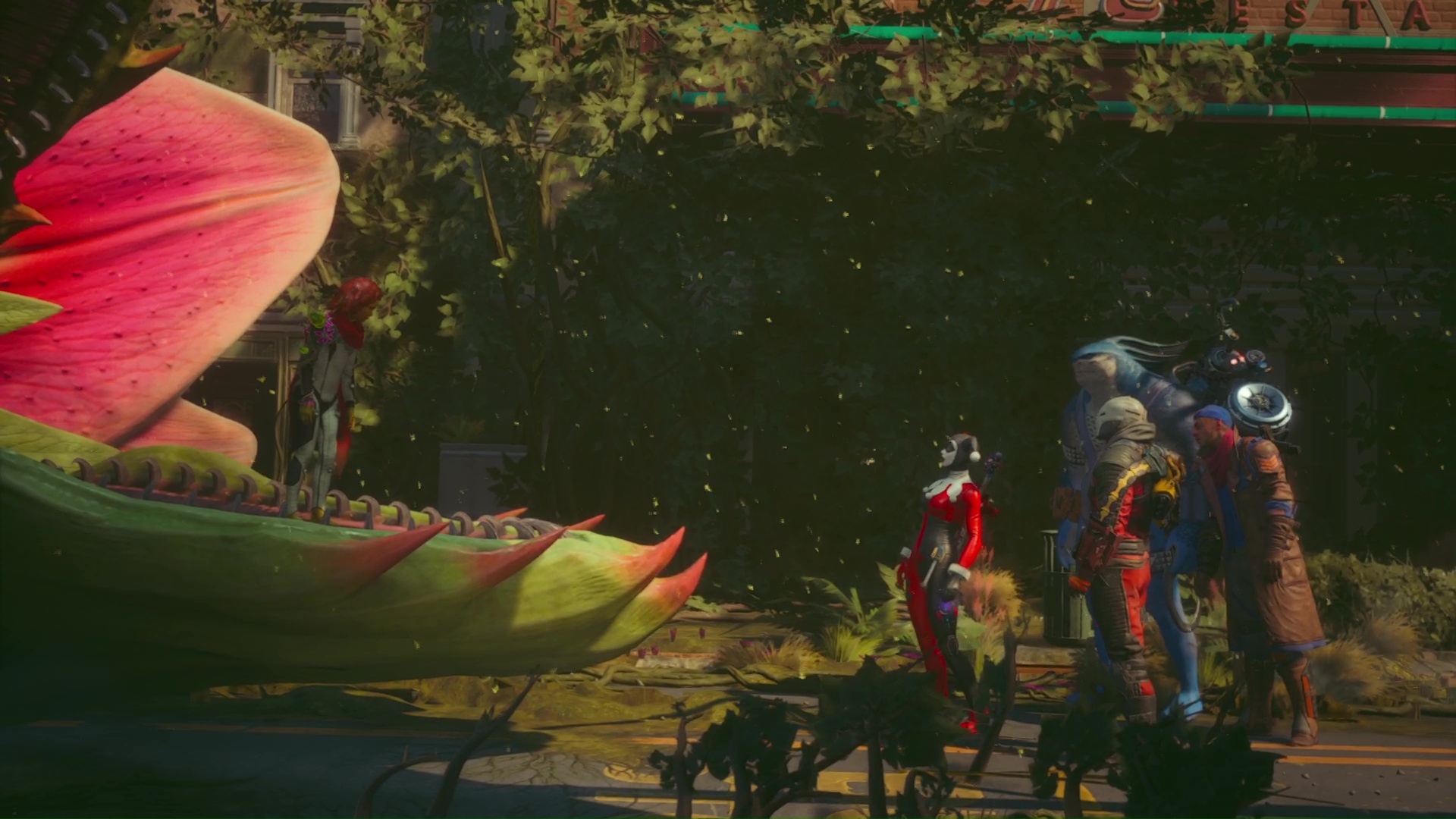
The last we saw of Poison Ivy in the Arkham series, she was an adult who had a tense alliance with Batman to stop the machinations of Scarecrow. After Scarecrow used the Cloudburst device in Arkham Knight to spread fear gas across Gotham City, Ivy used all her strength to create giant plants capable of purifying the air - but died to the toxin in the process, crumbling into dust in Batman's arms.
Ivy returns as a child here, having been reincarnated through the plants themselves. It's not hugely explained, but it seems as though some form of her consciousness spread through plantlife and reformed a new body for her. Ivy is now apparently fully flora, rather than a plant/human hybrid, having been effectively rebuilt, and has a few scant memories left over from her previous life - on meeting Harley Quinn, she says that while she has no conscious memory of her friend, her pheromones remember her on some level.
Why is Deadshot a different person?
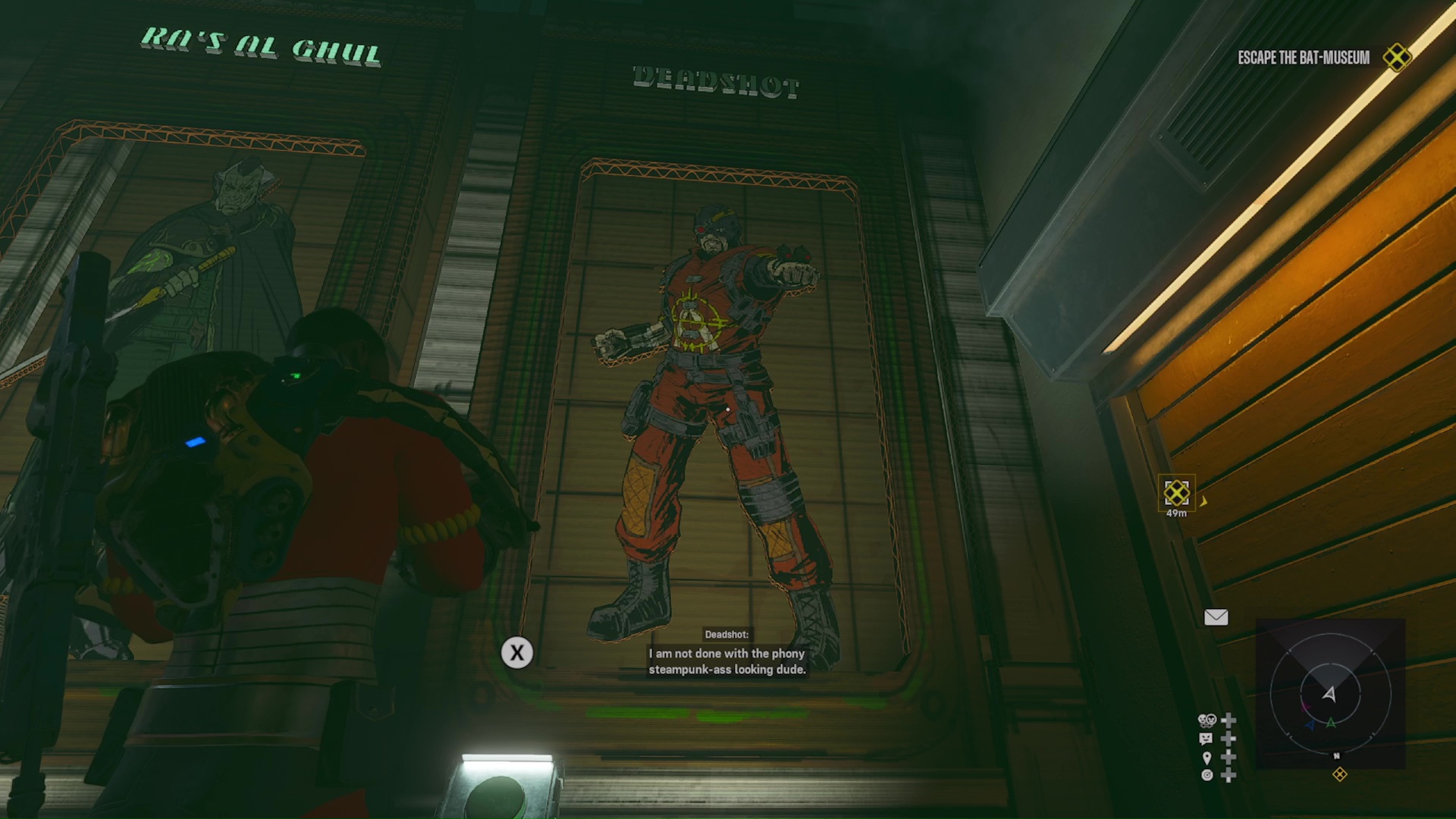
There's a recurring joke in Suicide Squad about Deadshot's identity, and it's understandable - Deadshot was shown in Arkham City and is the focus of a side quest about preventing him from assassinating certain important figures like Jack Ryder. In Arkham City, Deadshot was a white guy with a handlebar moustache and a steampunk look to his costume - which is hardly the case here.
It's explained that the Arkham City Deadshot was actually an imposter or copycat killer that the Suicide Squad Deadshot is constantly irritated by, and frequently swears to get even with. The confusion between the two characters is frequently played for laughs in Kill the Justice League, as well as characters mistaking Deadshot with the one-eyed mercenary Deathstroke.
Is the Suicide Squad Harley Quinn the same as the Arkham Harley Quinn?
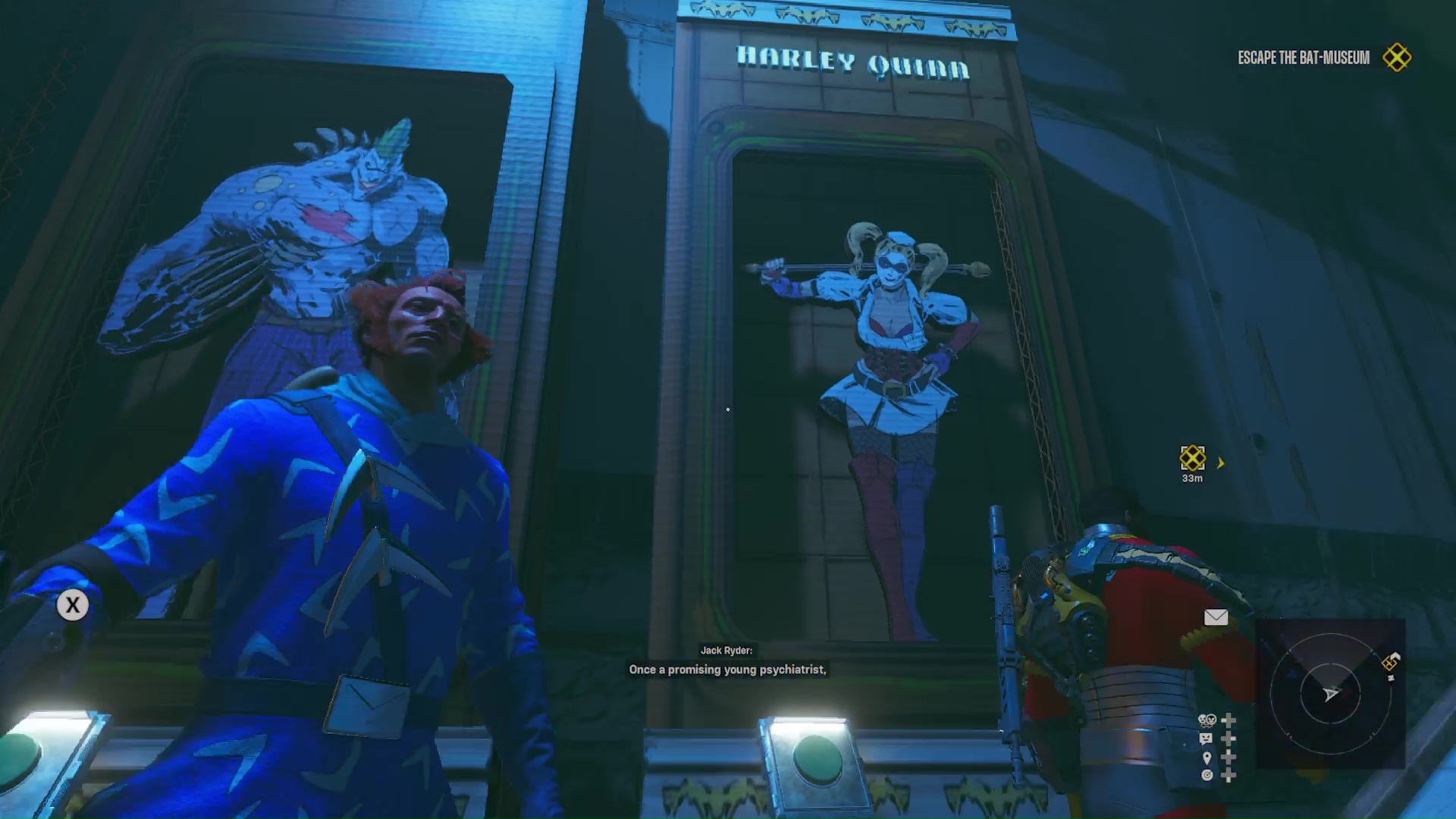
Finally, yes - Harley Quinn from the Arkham games is the same canon character as the playable version shown here in the Suicide Squad game. Admittedly, in the time that elapses between Arkham Knight and Kill the Justice League, Harley has gone through some change and growth - namely coming to break her obsession with the Joker, mirroring her recent change in DC Comics.
© GamesRadar+. Not to be reproduced without permission







